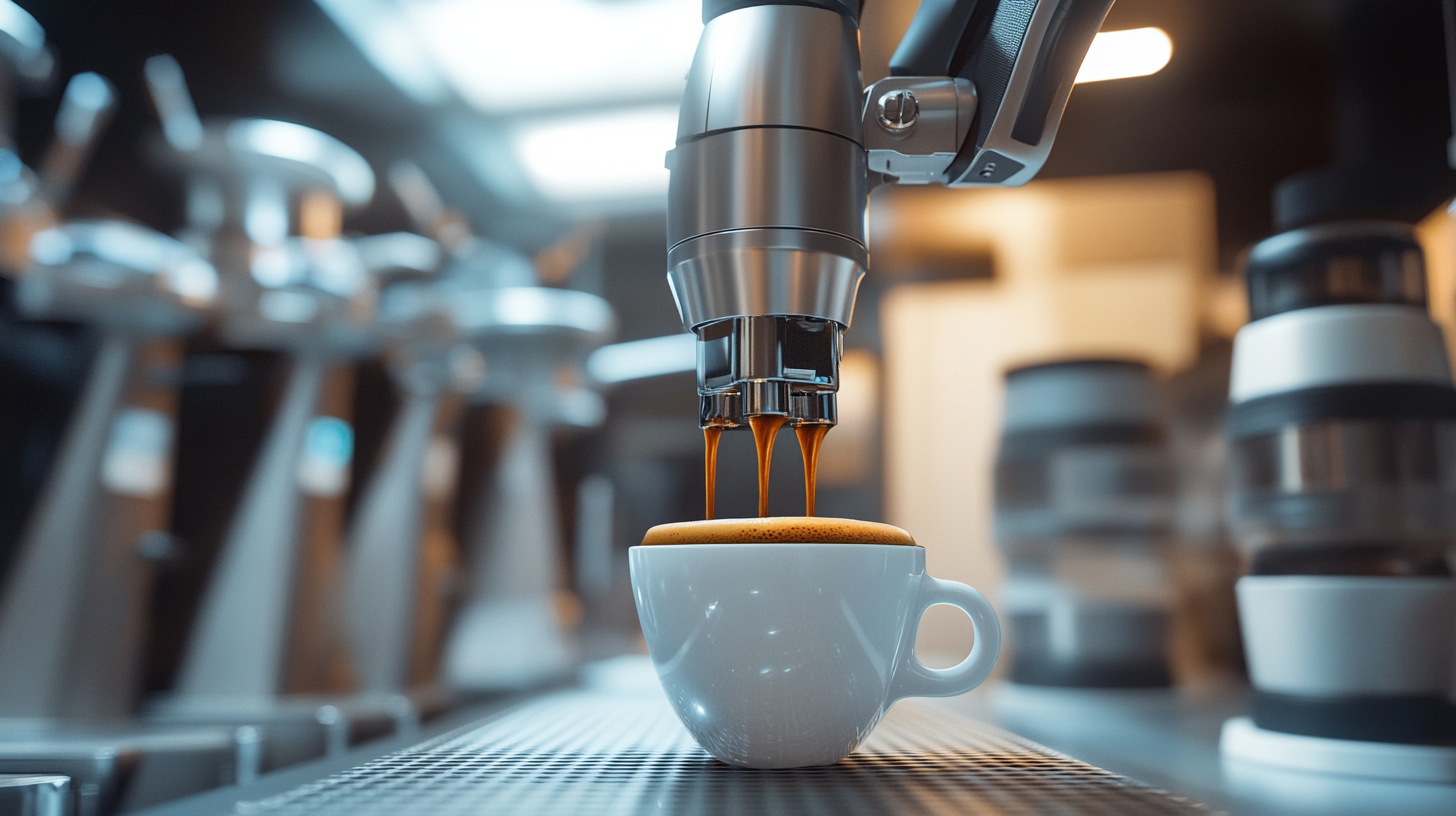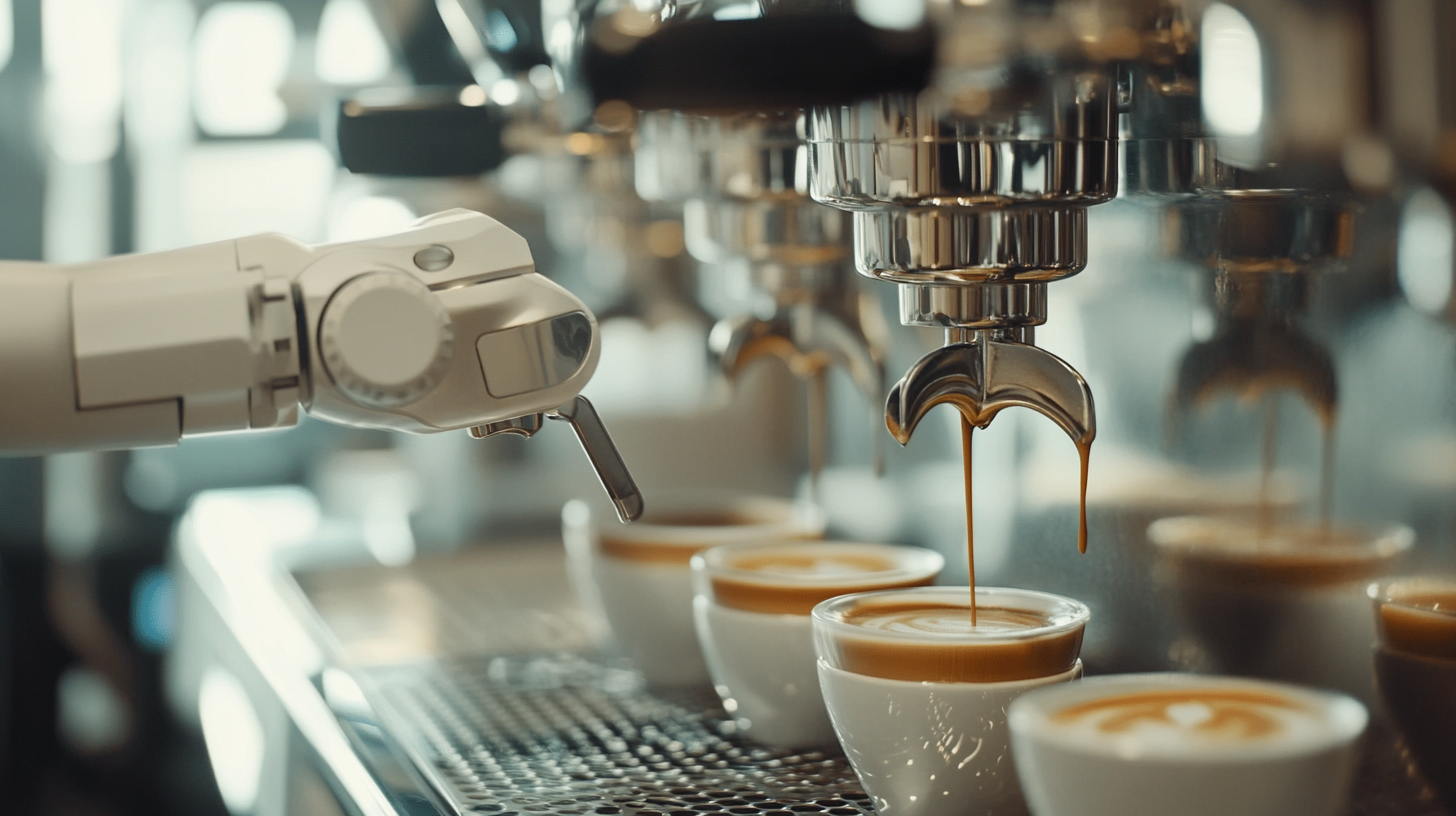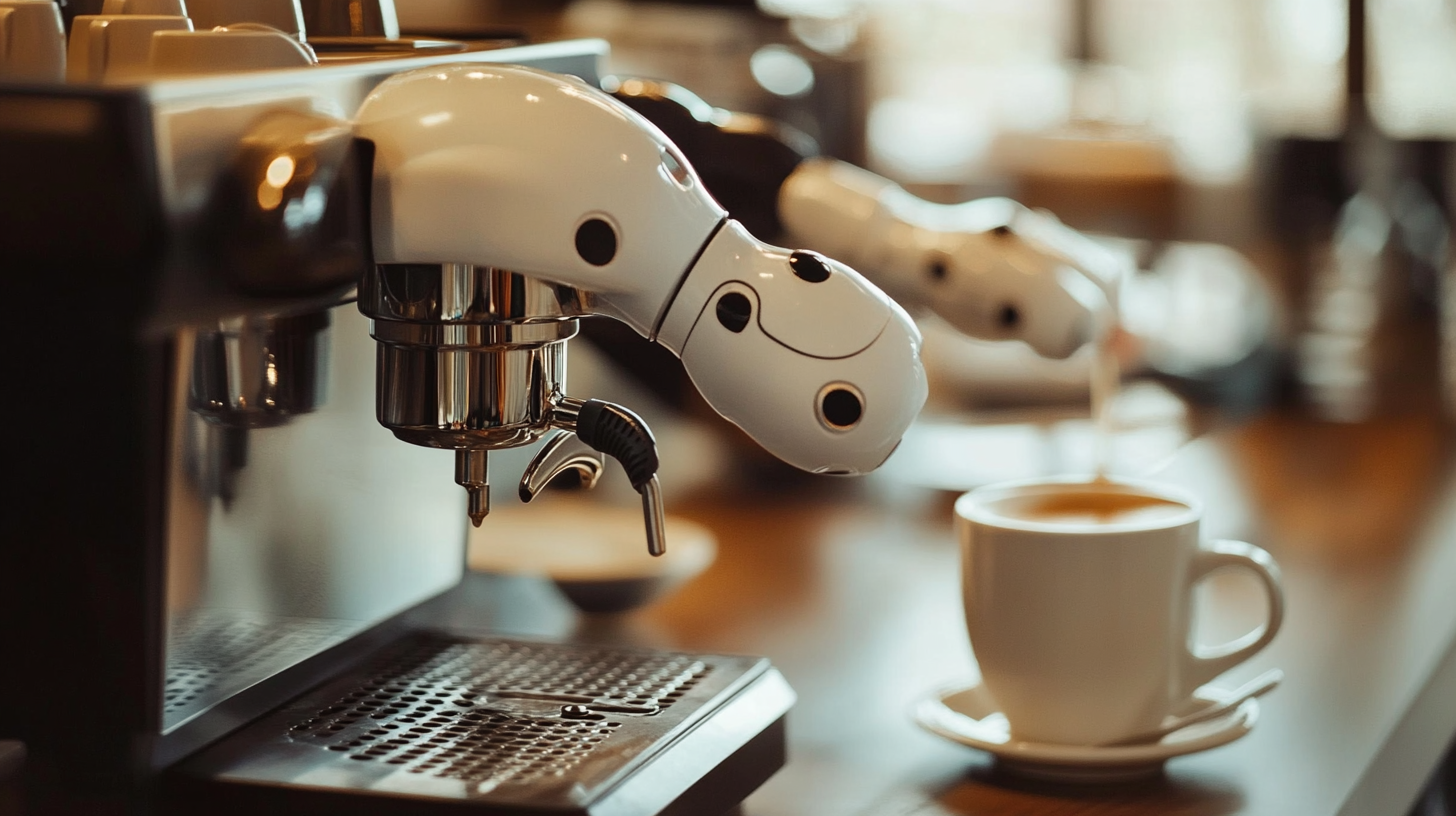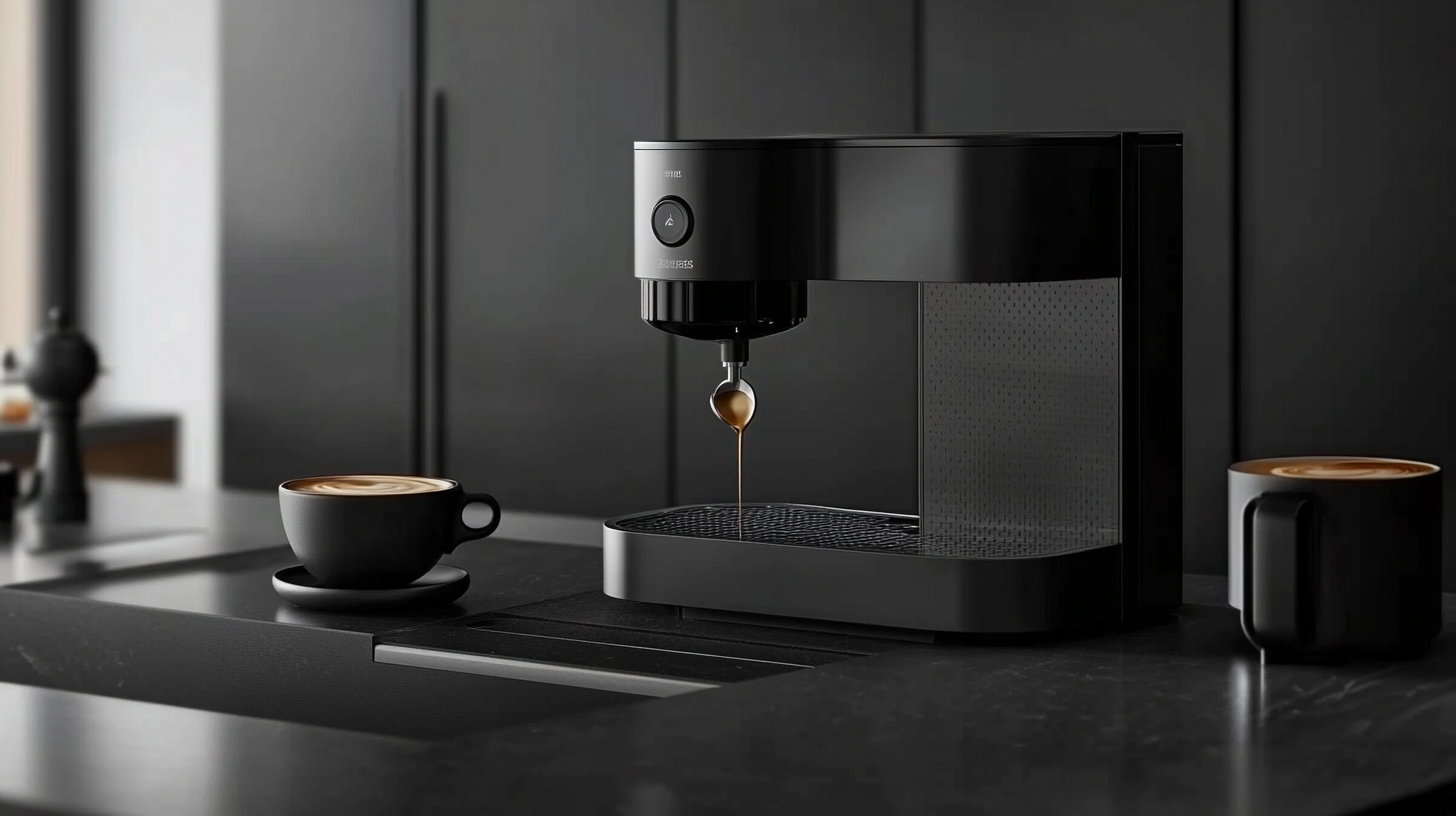

Trends Shaping the Future of Coffee Robot Machines in Global Markets 2025
You know, the coffee world is really changing these days! Technology is having a major influence, especially with these new Coffee Robot Machines popping up everywhere. I came across this report from Research and Markets that says the global coffee machine market is set to grow at around 4.5% from 2021 to 2026. And get this—there's a huge interest in this whole robotic coffee-making thing. It's all part of a bigger trend towards automation and making things more efficient in the food and beverage space, largely because folks just want their coffee to be high-quality and super convenient.
Looking ahead, the future of Coffee Robot Machines is looking bright! Big players in the industry are pouring money into new tech to make our coffee experiences even better and refine how they brew. In fact, a study from Statista found that more than 60% of millennials are totally on board with using automated services for their coffee fix. That pretty much shows how people’s preferences are shifting and they’re embracing techy solutions. As we near 2025, it’s really important to keep an eye on what trends are driving this market. Think about advancements in AI, machine learning, and sustainable practices—they're not just going to change how our coffee is made, but also how we see coffee on a global scale!

Emerging Technologies Revolutionizing Coffee Robotics
North to Fisheries, automation is set for adoption, and coffee robot machines are changing rapidly because of emerging technologies. A MarketsandMarkets report stated that innovations in robotics and automation will drive the coffee machine market to a value of $20.2 billion in 2025 globally. AI and ML abilities in coffee robots vocalize transformations in the brewing and serving of coffee. They lend themselves not only in ensuring consistent quality but also enhance operational efficiency, allowing coffee businesses to serve an increasing population of clients. A big trend that is taking its place in this sector is the IoT (Internet of Things) technology integration within coffee machines. Research supports that IoT-enabled coffee machines optimize operations via real-time analytic data and remote monitoring capabilities. According to a report by Research and Markets, the IoT coffee machine market is expected to grow profitably at a CAGR of over 25% during the period from 2020 to 2025. The connectivity facilitates operators in streamlining processes and lessening wastage, which supports sustainable initiatives in the coffee sector. In addition, robotics have advanced in making coffee machines which are more versatile and capable of executing a multitude of brewing methods. With the rise of specialty coffee culture, machines that can handle several brew styles are becoming more and more in demand, from espresso to cold brew. In a recent report by Allied Market Research, the segment for specialty coffee is forecasted to register a substantial growth rate, thereby boosting the attractiveness of multifunctional coffee robots. The coffee industry is incredibly well-positioned to harness such technologies to keep up with changing consumer preferences and create a future in which coffee preparation is as sophisticated as it is efficient.

The Role of AI and Automation in Coffee Machine Innovation
The coffee industry is at a turning point and perhaps this will be defined by key trends where coffee machine innovation would be integrated with artificial intelligence and automation and redefine world markets bu, perhaps, the year 2025. Reports further claim that the global coffee machines market is estimated to hit $7.9 billion by 2025, after growing at a CAGR of 4.5% through the forecast. Most of the growth findings are ascribed to advancements in technology, especially those bringing artificial intelligence into machine design and automation at functional levels.
AI-driven coffee machines are gaining significance in brewing process personalization and accuracy. Technavio reports that about 30% of coffee consumers are interested in a machine that would allow for the personalization of beverage settings through AI algorithms. These machines learn about every individual's custom approaches over time and change brewing temperature, time, and coffee grind size automatically, with the aim of maximizing the flavor extraction outcome. Moreover, it cuts human error and thus offers a consistent coffee experience that consumers are tending to crave.
Automation ensures easy operations in commercial establishments such as cafés and restaurants. The market for commercial coffee machines will grow at a CAGR of 5.2% because of increased efficiency and effectiveness in dealing with high-demand environments. Automated coffee machines are said to reduce labor costs, thus making the adaptation to a new employee shorter. As a consequence, businesses will still be able to maintain the same standard of high-quality service, even during crazy hours. The more commercial ventures have this self-learning automated system, the more change will be visible in the coffee industry. This will meet all of its consumers' expectations and operational efficiency models that will compete in this lucrative market.

Consumer Preferences Driving Coffee Robot Design Trends
Heading for 2025, the coffee industry is undergoing transformative changes, mainly instigated by the consumers themselves, affecting even the design and functionality of the coffee robot machines. An International Coffee Organization report reveals that by 2025, global coffee consumption will touch 178.9 million 60-kilogram bags. Such a growing demand witnesses a highly accelerated trend toward automation catering to an array of consumer tastes.
An emerging trend worth noticing is the increasing personalization of coffee experiences. As stated in a Grand View Research report, demand for customizable coffee will be expected to surge, with an estimated CAGR of 7.5% from 2022 to 2030. This demand is being met by integrating advanced AI and user-centric designs into the coffee robot machine to allow consumers to modify their beverages in any way they choose: from selecting flavor profiles to adjusting brew strengths. This personalization creates a more engaging and thrilling user experience, thereby increasing the attractiveness of the robots in commercial and residential applications.
Besides, sustainability has become a critical aspect of design trends. Eight months ago, Mintel conducted a survey that found that 53% of consumers think environmentally friendly practices are a must when purchasing coffee products. Coffee robot manufacturers are designing energy-efficient machines and using sustainable materials in the manufacture of coffee robots. From biodegradable pods to machines that reduce waste, these designs appeal to environmentally conscious consumers as well as align with the escalating corporate social responsibility considerations in coffee. As consumer preferences change with time, coffee robots are anticipated to gain significant uptake and usher in innovations shaping the future of global coffee preparation.

Sustainability: Eco-friendly Practices in Coffee Machine Manufacturing
You know, as the global coffee scene keeps changing, sustainability is really starting to take center stage in the coffee machine manufacturing world. It's pretty cool to see how recent innovations reflect a serious commitment to eco-friendly practices. These changes not only cut down on environmental harm but also catch the eye of more and more conscious consumers out there. Nowadays, using sustainable materials and energy-efficient tech isn't just a nice-to-have—it's pretty much necessary for manufacturers who want to keep up in this competitive market.
I was reading about an exciting initiative at a living lab in a Dutch university where researchers are diving into how we can create a healthier and more sustainable future for food, and guess what? The coffee sector is part of this! They're experimenting with all kinds of biodegradable materials and recyclable components for coffee machines. It's fascinating to see how these projects are setting the stage for products that really minimize waste and shrink carbon footprints. The innovations coming out of these living labs are all about shifting our focus toward sustainability, putting the ecological footprint of coffee machines front and center alongside their functionality.
And here’s the kicker: this shift is also changing how people think about their coffee habits. Today's coffee drinkers are really more aware of what they consume and how it impacts the planet. They're looking for machines that back up sustainability, whether that's through energy-efficient operation, responsibly sourced materials, or even programs for recycling old machines. As manufacturers catch on to these changing preferences, the whole idea of sustainability is becoming a core part of designing and marketing coffee robots. They’re starting to be seen as must-have essentials in the coffee landscape of the future.
Market Growth Predictions: Coffee Robotics in 2025 and Beyond
In view of the advancing technology and changing consumer trends, the coffee robotics market is now on the edge of a significant period of growth in the year 2025 onwards. As per the recent findings of a Mordor Intelligence study, the global coffee robotics market is anticipated to grow at an estimated CAGR of over 25% during the period from 2023 to 2028. This soaring demand is attributed to the automation in the food and beverage sector since AI-powered coffee machines have become quite common lately.
As businesses continue to focus on improving overall efficiencies, the coffee-making process with robotic integration was seen entering an increasing acceptance phase. Such machines increase efficiency, along with ensuring consistent quality-an important factor in customer satisfaction. According to a report by Research and Markets, robots in the making of coffee greatly reduce operational costs for taverns and restaurants while ramping up productivity. This report further estimates that by 2025, nearly 30% of coffee outlets in developed markets will apply some form of robotic technology.
Robotic solutions are also being influenced by stable and high-end coffee products. Consumers are becoming selective, preferring personal experiences and higher-grade brews. Robotic coffee equipment can therefore aim these by offering customizable options while sourcing ethically produced coffee beans. The specialty coffee market, as noted by the Specialty Coffee Association, continues to grow, with worldwide sales projected to hit $100 billion by 2025-creating further demand for the state-of-the-art coffee robotics invention.